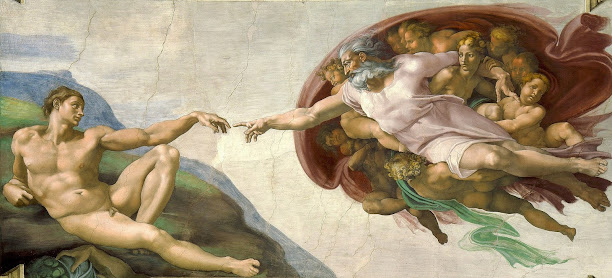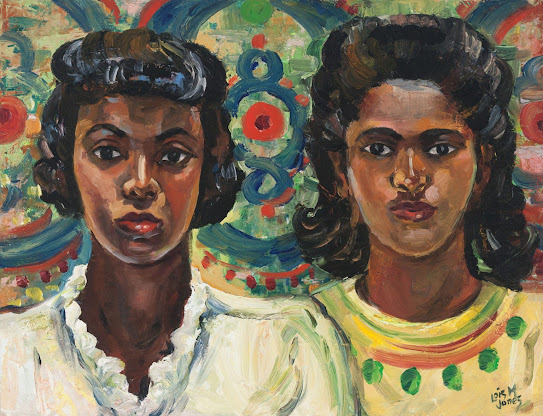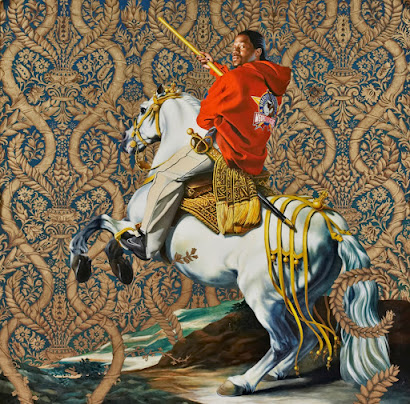Free Will in The Plague
There have been many different responses
to the plague. Some townspeople have chosen to essentially ignore it and wait
for it to pass, some have decided to help fight the plague, and some have set
their houses on fire. The way different characters have reacted reveal a lot
about their worldviews. In Paneloux’s case, he has decided to give sermons
about the plague, stating that the plague is part of God’s unwavering plan.
Meanwhile Tarrou has set out to help the health committees control the spread
of the plague, showing that he believes human efforts can save lives. I find Paneloux’s
and Tarrou’s viewpoints particularly interesting, as they seem polarizing, and
get into the question of whether the people on The Plague have free will.
As Paneloux says in his sermons, he firmly
believes that the plague is God’s will and that God’s will must be accepted in
its entirety or fought in its entirety—there cannot be any middle ground. He explains
that the deaths caused by the plague, too, are God’s will and therefore the
townspeople should “will” those deaths as well. Paneloux seems to preach about
an all-powerful God whose will cannot be changed by individual efforts. Therefore,
I think it’s fair to say that his sermons indicate that he does not believe in
free will.
Tarrou is staunchly against the death
sentence, as he believes that all murder is immoral and untimely death should
be prevented if possible. In the context of the plague, this outlook leads him
to help fight the plague rather than idly accept it. Tarrou’s outlook on the
plague is likely also swayed by the fact that he does not believe in God or
heaven, and therefore thinks that life is the end of a person’s existence. Since
Tarrou believes in preventing plague deaths and does not believe in an all-powerful
God, we can gather that he does believe in free will.
Paneloux’s and Tarrou’s views about the
plague and free will seem like opposites, however I think that their ideas
coexist in the novel so far. The efforts made by the medical community have yet
to prevent the deaths of anyone who has gotten the plague (as for as we know),
however their quarantine camp system has likely prevented further spread. Paneloux
would probably argue that the deaths that God has willed have not been stopped
by any human efforts, while Tarrou would argue that deaths have been prevented
because spread has been prevented, and both of these situations can exist
simultaneously. Much like real life, the question of whether we have complete free
will or none at all goes unanswered, and both sides of the argument can’t really
be proven or disproven.



I definitely agree with your argument. If you were to ask the question of whether we have free will or not in the most objective manner possible, then we would still ask questions. However, for a human to answer it, would be completely dependent on that human's philosophy and lifestyle.
ReplyDeleteI agree. Paneloux seems to do very little besides just bend to the workings of the world (or, to the workings of God, as he perceives them). Related to what you've said, there's one more interesting juxtaposition that I noticed in this book. Paneloux believes that death is God's will, thus implying that God has already selected those who will die, and that these lives factor into a divine plan that is larger than ordinary people could possibly understand. However, after the death of Othon's young son, Rieux expresses a great amount of anguish at the plague's random and indiscriminate nature. I guess something to think about further would be: does Paneloux's idea of a "predestined" plan by God completely eliminate the need for free will?
ReplyDeletePaneloux's argument didn't make much sense to me, nor did his actions before his death. He basically said to his followers that our actions don't matter in the long run because everything is God's will, but we should still fight against the plague even if it's pointless? Essentially, we should pretend they matter? He also told his congregation that they shouldn't give into the plague, but then refused to see a doctor when he was sick. I interpreted his actions/words as the result of an identity/religious crisis, but maybe I misread
ReplyDeleteThis reminds me of what we were learning in History ("free will" is the freedom to do what is right or the freedom to not choose what is wrong). In this case I couldn't see who fits perfectly under that category of free will, as both Paneloux and Rieux think that they are doing what is right. I agree with you that both sides of the argument cannot be disproven or proven.
ReplyDeleteThe idea of free will as mentioned in the novel seems accurate when you compare Paneloux with some people in our modern society. Though I cannot speak for all religious people, from what I've seen during the pandemic, it seems like the definition of free will is always manipulated to allow themselves to do something that health officials tell them not to, and to restrict rights of other people (Ironic as it is). This paradox makes me think of Bill Hicks's "It's just a ride" (https://genius.com/Bill-hicks-life-is-just-a-ride-annotated), where Hicks describes peoples' inclination to believe that 'it's not a ride' until people them it is just a ride, resulting in the silencing of those people.
ReplyDeleteI love looking at religion and how religious communities handle large-scale crises like the plague, so seeing Paneloux's reaction to the plague was really interesting to me. I agree with you that Paneloux doesn't seem to believe in free will, and puts all his faith in God. Camus seems to disagree with Paneloux's decision, as Paneloux dies a somewhat foolish death, but that makes sense considering Camus' existentialist views. The question of free will is one that has been at the forefront of discussions in religious communities for a long time, and has once again taken center stage amid the COVID-19 pandemic, so this is something that is still highly relevant today! We have Panelouxs and Tarrous all around us.
ReplyDeleteI find this blog post interesting because when I was reading that section, I also thought of free will, and I agree with you on your comment that Paneloux doesn't seem to believe in free will. However, one thing that I find interesting that is slightly related to this topic is how Camus seems to criticize religion through these contrasts of different philosophies. Paneloux's reaction almost seems absurd (refusing medical treatment) and from my basic understanding of diseases and their spread, it's obvious that if people followed Paneloux's directions and left it all up to God, they could have stayed with a plague for longer. Despite the fact that Tarrou died, he was part of the solution, but in my opinion Paneloux was kind of part of the problem.
ReplyDeleteI've always found free will/God's will to be such an incredibly strange and very subjective topic. Where do you draw the line between what is no longer "God's will"? Couldn't you argue that God willed the plague hit the town, but also wished for the people to persevere and grow stronger from the experience, and so willed that people should fight back? I'll admit that I'm not religious, so I don't know a whole lot about this subject besides the more philosophical side of it, but when does one decide that something continues to be or is no longer God's will.
ReplyDeleteI've also found this very interesting, it seems that between different groups and different situations this line changes. It seems that saying something is "Gods will" is usually used to push some sort of agenda, whether it is for praise or to try and condemn a group of people. It could be seen as everything is predestined and all Gods Will or maybe that it was God punishing a sinful people. Anyway it is an interesting subject.
DeleteAs we all know, these characters were carefully crafted by Camus to show two viewpoints on the same issue. In this case, one backed with science, and one backed with faith. Personally, I am not a person of faith, but I do find it interesting that faith seems to give people a certain strength. I think this is because they have something to believe in, and this kept people somewhat sane in the beginning of the plague, just like some people took comfort behind the facts of science. It's just interesting how humans have found two ways to accomplish similar things.
ReplyDeleteI think Rieux's definition of free will is also good to consider in this context, since he points out that no one ever truly throws themselves at the mercy of providence. He thinks that even religious people like Paneloux don't fully believe that God is all-powerful, which is an interesting contrast. I think Rieux's viewpoint is even more polarized than Tarrou, because Rieux says that he'd cease curing the sick immediately and leave that to God if he believed in an all-powerful god. Both major atheistic characters seem much more jaded about illness than Paneloux who has his faith to rely on.
ReplyDeleteThis was an interesting post. I hadn't really thought about this topic at all while reading the book, so it was interesting seeing your view on it. I liked how you formulated an "argument" per se for each character, and I definitely agree with what you said here. Personally I hate the idea of predestination and all of that, but as you pointed out it's very hard to prove either side. Cool post.
ReplyDelete